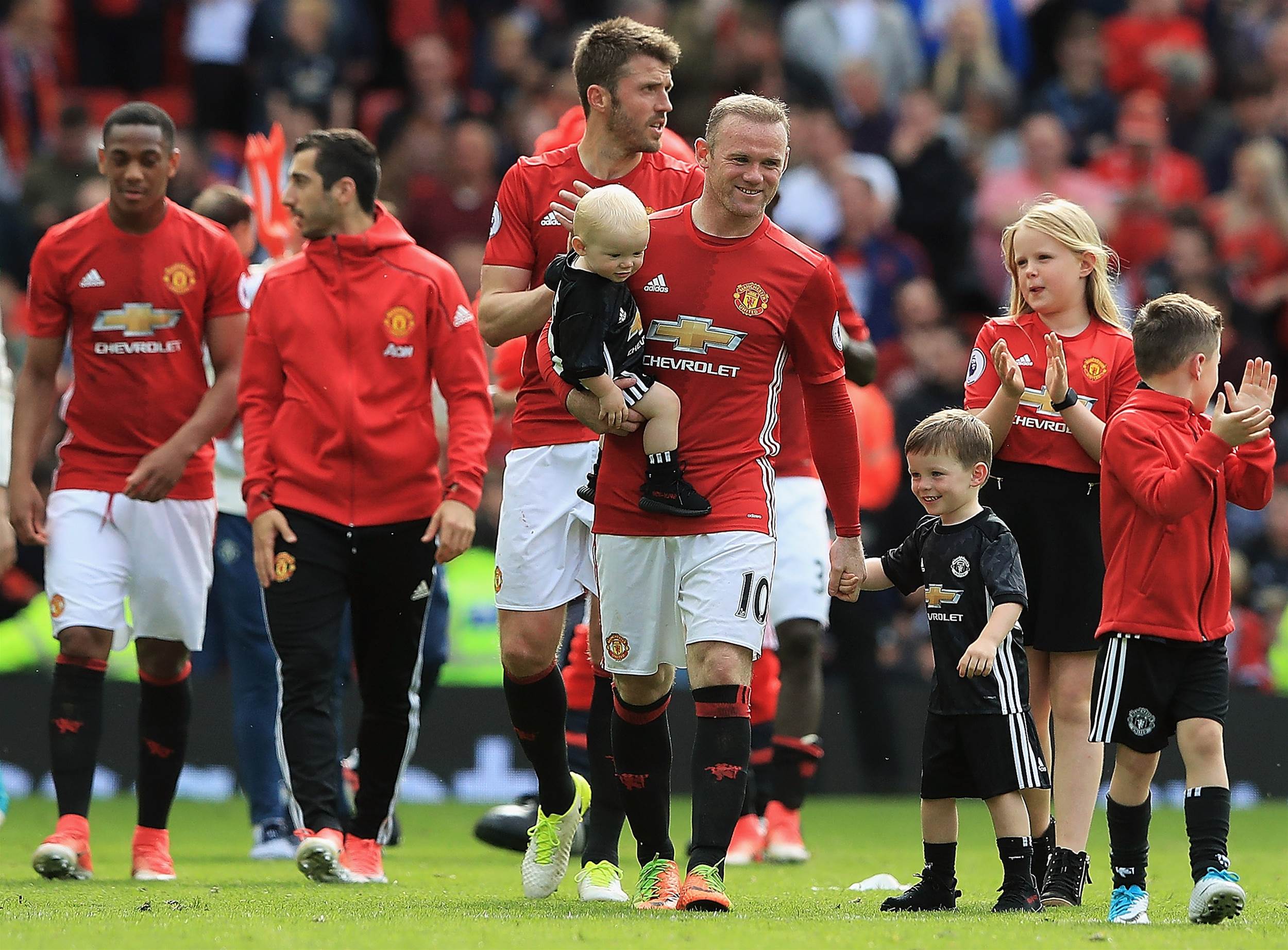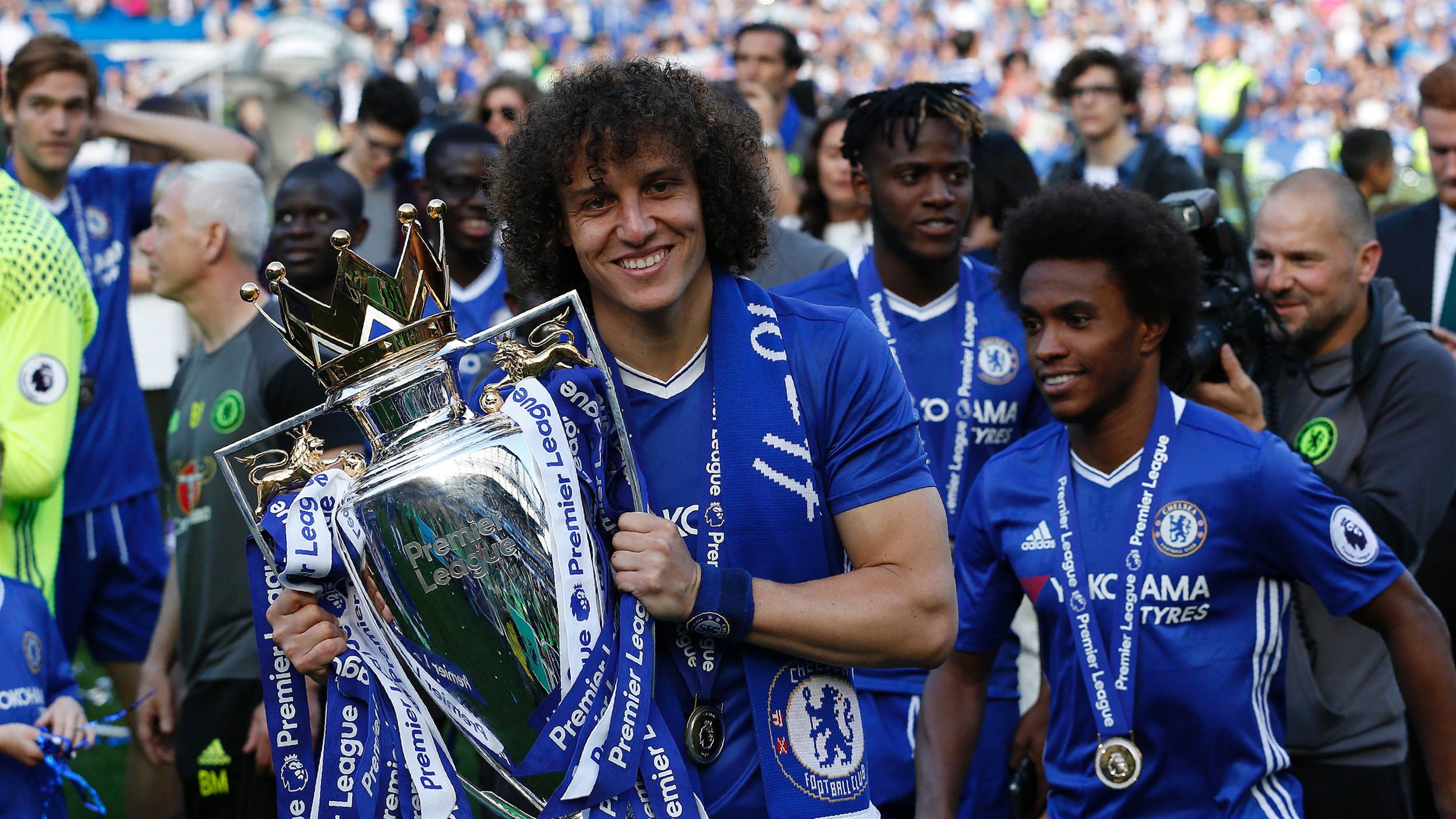The treatment of Wayne Rooney, John Terry and Claudio Ranieri created three modern football martyrs, bona fide personifications of loyalty’s dying influence in the English game. But why is there no room for the devoted anymore? And should a new wave of faithless players be lauded, or despised?
When the decision to sack a manger appears extraordinary, such as Claudio Ranieri’s dismissal earlier this year, it’s traditional for the club’s ownership to face intense scrutiny.
But last season, when Chelsea fired Jose Mourinho, something changed. That time, Chelsea’s footballers – not the board – faced the blame. Chelsea’s players were accused of revolting against their title-winning manager to force his removal.
Although details remain scarce, a similar pattern emerged in Leicester. The Foxes’ players were accused of betrayal – back-stabbing the man who guided them to unbelievable success, in the shape of the 2015/16 Premier League title.
Football is evolving. As players grow in wealth, stature and bargaining power they're wielding an unnerving influence over the sport’s traditions many hold in high esteem.
Whether it's forcing out successful managers or holding clubs to ransom over transfers, footballers are exhibiting a power never seen before. But why are they hell-bent on tearing down time-honoured structures?
This is the latest in many uncertainties that have plagued hapless fans this season, as the fate of their clubs lie in the players' hands for entirely new, and previously unseen reasons.
Diego Costa flaunted his desire to leave Chelsea mid-season, a threat Dimitri Payet usurped and actually followed through on. Every season the issue of a modern footballer's loyalty – or their lack of – rears its egocentric head.
But there’s another question many pundits have ignored, that strikes at the very root of professional sport.
It bodes investigating why the world’s best paid, in the world’s best leagues, want out at all, and why they would force out a title-winning manager at the first sign of conflict.
Why do jerseys, once worn with honour, become shameful embarrassments, stashed away in the backs of betrayed fan’s wardrobes? Why do names that once rocked stadiums turn to shrill cries of Judas?
The answer may not be as simple as you think.
There was a time when one-club footballers were a common occurrence. They were players who devoted their lives, for rich or for poor, in sickness or health, to the clubs that developed them.
Generations were raised to think they were the true greats of the game, men whose exploits and allegiances would forever live in the minds of equally loyal fans.
Best represented by icons of the ilk of Santiago Bernabeu, Tony Adams and Paolo Maldini, many believe they weren’t just footballers, but personifications of the clubs they represented.
But do modern supporters still believe this? It stands to reason if the mentality of footballers has changed so dramatically, so would the mentality of fans.
If Matt Le Tissier was playing today, does anyone believe he wouldn’t desert the biting winters of Southhampton for the sun-drenched riches of Madrid, given the chance?
Loyalty may have stopped him, or a sense of tradition. Maybe even a fear of the unknown. But there are 50 million reasons a year why he would have.
It’s not just about money, either. Footballers aren’t just sports people, they’re impressionable young men in the prime of their lives, who’ve so far spent most of it on training pitches, kicking a ball around.
There were no gap years, dingy share-houses or years spent getting drunk for Dimitri Payet.
Instead, a young footballer's life revolves around hard work, rigorous dieting and getting screamed at for six hours a day by an irate coach.
Not many twenty-something’s have that kind of devotion to surmount the burden of expectation to make it as a professional.
While footballers have an ostensibly healthy lifestyle, they face an extremely pressurised situation to mature in. Even for those who have bountiful support networks and prosperous education, their work/life balance is askew.
Given the dichotomy between the life of a young footballer and young supporter, for fans to expect loyalty from their heroes isn’t just outdated, it’s insulting. Even expecting allegiance for two seasons - as Hammers fans felt was their right with Payet - is asking a lot.
People often point to the money footballers are paid as if it should buy dependability, when it often does the opposite. It’s simple to chuck money at a ‘problem’ and expect it to go away. People do it in all walks of life.
Fans idolise them and clubs expose them to the adoration of millions, while paying them annual salaries that dwarf the GDP’s of small island nations.

Club owners attempt to buy the loyalty of footballers like a divorced parent, substituting genuine affection for lavish presents. But neither party offer loyalty. Fans boast signed kits and posters on their walls, but when push comes to shove, they’re no less capricious.
Look at the treatment of Wayne Rooney by Manchester United fans. He’s arguably the greatest player in United’s history, yet there’s barely a peep when Jose Mourinho phases him out. Rather a collective sigh of relief.
Yet fans still expect footballers to treat them differently, as if they expect superior beings who’ll devote careers to them. Isn’t it enough they devote their lives to the game fans love?
Footballers work hard for their money, in a ruthless industry where most never make it. They may earn outlandish wages, but few other professions are exposed to the pressure, let alone require the dedication, of a modern footballer.
This is where everybody else’s loyalty becomes important. Coaches can be exempted, due to the fragility of their own careers, but fans, observers and pundits have no excuse. They expect loyalty, yet rarely extend the same courtesy.
Unless footballers wish to retire at 30-years-old, spend their twilight years warming a bench, or the height of their ambition ends with the mediocre club who lucked out on them as a child, devotion is a mistake talented modern footballers can’t afford to make.
Even if Rooney had stuck by Everton all those years ago, there’s no certainty that he’d be a starter now. Such is life for the modern one-club man.
Rooney was better off gambling, exploring his possibilities and chasing the money and glory Manchester United could offer. His only mistake was becoming attached. If a footballer is good enough, given what they’ve gone through to get there, they’ve earned the right to put themselves first.
Club owners certainly do, and they don’t train through a miserable Manchester winter for the privilege.
Fans of large clubs are used to getting what they want, but what they want changes with the tide. Fans were not always this superficial. Money has changed the nature of many clubs, corrupting their fans in the process.
Why would Diego Costa be loyal to Chelsea, when the club shows little, if any dedication to John Terry - a proud Chelsea servant for his entire career.
Chelsea might never have extended Terry’s contract last season had it not been for some sudden defensive injuries. A fit and capable Terry would have been forced to either prematurely retire, or leave the club that he loves for a short stint elsewhere.
This is a man who only three years ago was one of the greatest centre-backs in the world. Now Chelsea is making him feel lucky to occupy a spot on the club’s bench.
When Terry retires at the end of this season, he’s not even guaranteed to play his final game. With an F.A Cup on the line, Antonio Conte won’t hinder potential glory for anyone.
That Conte doesn’t particularly care about Terry is reasonable. What’s shocking is Chelsea fans appear to feel the same.
That's where fans show their true character. When an aged but talented club legend’s career is winding down, but they still want a respected role, modern fans rarely see them as entitled.
When analysing a club's responsibility to show loyalty to its heroes, capability should be emphasised above all else. Terry is definitely capable of playing a more substantial role then he has been.
Putting loyalty aside, for the F.A Cup final Chelsea fans could demand his leadership, big-game experience and the resoluteness of his playing style.
They aren't, because football fans are among the most fickle people in the world. They’ll lavish adoration upon you to an extent normally reserved for gods, before deserting you with reckless abandon the second you’re beyond your best.

Instead, Blues fans have rediscovered a more dynamic defensive talisman in David Luiz. A man who in an almost perfect allegory, was himself shunned out of Chelsea a mere two years ago for poor performances. Will Chelsea fans expect loyalty from him?
People may argue that self-centred agents have too much influence over player loyalty. They’ll point out a large percentage of the exorbitant fees that drive player transfers end up in agent’s pockets.
But agents didn’t create modern football’s dog-eat-dog nature, they only enhance it, and if footballers didn’t have ruthless representation they’d be eaten alive.
Many modern footballers are sheltered young men, up against billionaire club owners bloodthirsty for success, coaches aiming to exploit them before they’re exploited, and erratic fans who could turn on them at any moment.
So the next time you shun a young footballer for being greedy or ungrateful, take a moment to consider how true legends of the sport - the footballers they grew idolising - are treated nowadays.
Then imagine you were a young kid starting out in football, with stars in your eyes but your tail between your legs. Wouldn’t you want a bit of junkyard dog in you, too?
In the modern game it’s either that, or get thrown to the wolves.
Related Articles

Burnley continue hot Championship streak, Rooney draws

Relief for Rooney as Plymouth progress in League Cup













